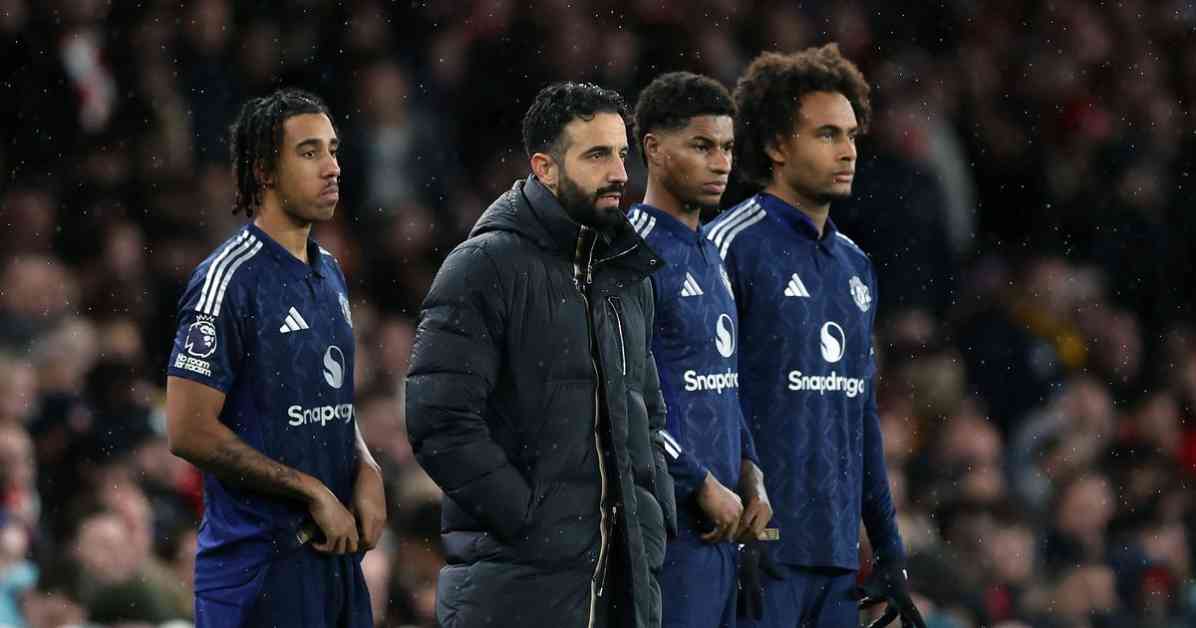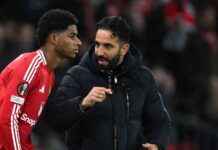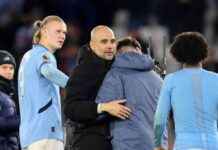Ruben Amorim’s Manchester United Side Falls to Arsenal: Defending Changes and Naming Players with Time Limits
Ruben Amorim, the head coach of Manchester United, faced his first defeat at the hands of Arsenal. The Portuguese manager defended his decision to make significant changes to the team following their impressive 4-0 victory against Everton in the Premier League. Making six alterations for the third consecutive match, Amorim raised eyebrows by dropping all five goal scorers from the previous game.
Tyrell Malacia, who made his first start in over 550 days, was substituted at half-time, seemingly part of a pre-planned strategy. The Dutch defender also received a booking towards the end of the first half. Amorim justified these rotations as necessary due to the fitness levels of certain players who are recently back from injury. “It’s not because I like to change all the time but we have to have all the squad fit,” he explained.
Fitness Concerns and Time Limits
Amorim highlighted the specific time limits for key players such as Harry Maguire, Tyrell Malacia, Mason Mount, and Leny Yoro. These limitations dictate the need for careful management of the squad to ensure optimal performance and avoid injuries. The coach emphasized the importance of balancing winning games with the players’ well-being and overall squad improvement.
Arsenal Defeat and Set Piece Woes
The defeat at the Emirates Stadium saw United slip down to the lower half of the Premier League table, with the team now winless in their last seven matches. Arsenal’s two goals stemmed from corner kicks, exposing United’s vulnerability in defending set pieces. Amorim expressed frustration at the team’s inability to assert control in the final third and acknowledged the need for improvement in attacking prowess.
Focus on Strategy and Adaptation
Despite the disappointing result, Amorim emphasized the importance of analyzing the game beyond the scoreline. He highlighted the team’s efforts to implement a strategic approach, particularly in defensive organization and ball progression. The coach acknowledged the challenges of refining the team’s attacking creativity within a limited timeframe but remained optimistic about the potential for growth and development.
As Manchester United continues to navigate a challenging period in the Premier League, Amorim’s commitment to strategic evolution and squad management will be crucial in shaping the team’s performance moving forward.













